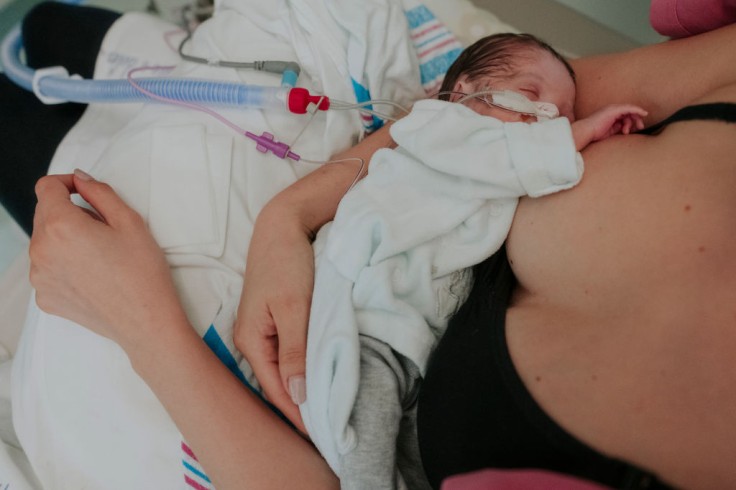
When St. Louis native Jessica Grib was about 32 weeks pregnant with her second kid, her blood pressure rose. The then-30-year-old thought little of it at the time, saying she was not concerned as she did not think anything would happen.
Grib's doctor prescribed her medication, but the pregnant mom's blood pressure did not lower. Even bed rest did little to help Grib, who went into cardiac arrest after delivering the baby.
After giving birth, Grib learned that she had peripartum cardiomyopathy. It is a type of heart failure or weakness of the heart muscle that happens at the end of pregnancy or within the first five months of delivery, according to Dr. Kathryn Lindley, the director of the Women's Health Center at Vanderbilt University.
Grib wants to raise awareness about peripartum cardiomyopathy
The American Heart Association said this rare condition could be hard to detect because it mimics pregnancy symptoms. Grib said that she wants to raise awareness about this dangerous disease. She added that she wants people to be comfortable advocating for themselves and to know the signs and symptoms of peripartum cardiomyopathy and heart failure.
Grib's doctor suggested that she deliver her baby at 37 weeks when blood pressure medication and bed rest did little to help her. She agreed with Lindley, but at the last minute, baby Amelia turned breech, and doctors needed to perform a cesarean section on Grib. The worst-case scenario happened as she started crashing in the recovery room.
As hospital staff tried to bring Grib to the cardiac catheterization lab, a room with diagnostic equipment that could generate heart images, she needed CPR for 10 minutes. Grib told TODAY that it was evident that she was having a heart event. She said that one of the nurses was a new father himself, and his whole mantra was they would not lose Grib.
Grib placed on ECMO after giving birth
Doctors implanted an Impella heart pump on Grib, and the new mom was later transferred to another hospital. She was placed on ECMO there, which is a type of life-support machine that works like an external heart and lungs for the patient, according to the American Thoracic Society. The two devices worked together to support Grib while her heart was in recovery.
Grib said that she was on maximal life support hours after her daughter was born, and they had no idea what was happening with her. Grib was sedated on life support for two weeks and could not see her daughter. Grib's husband split his time between the two hospitals in St. Louis as he tended to his wife and child. When Grib woke up, she was finally able to meet her daughter.
Grib said meeting her baby was very emotional. She added that they had a photographer come in and capture that moment, and she loves and hates those pictures simultaneously.